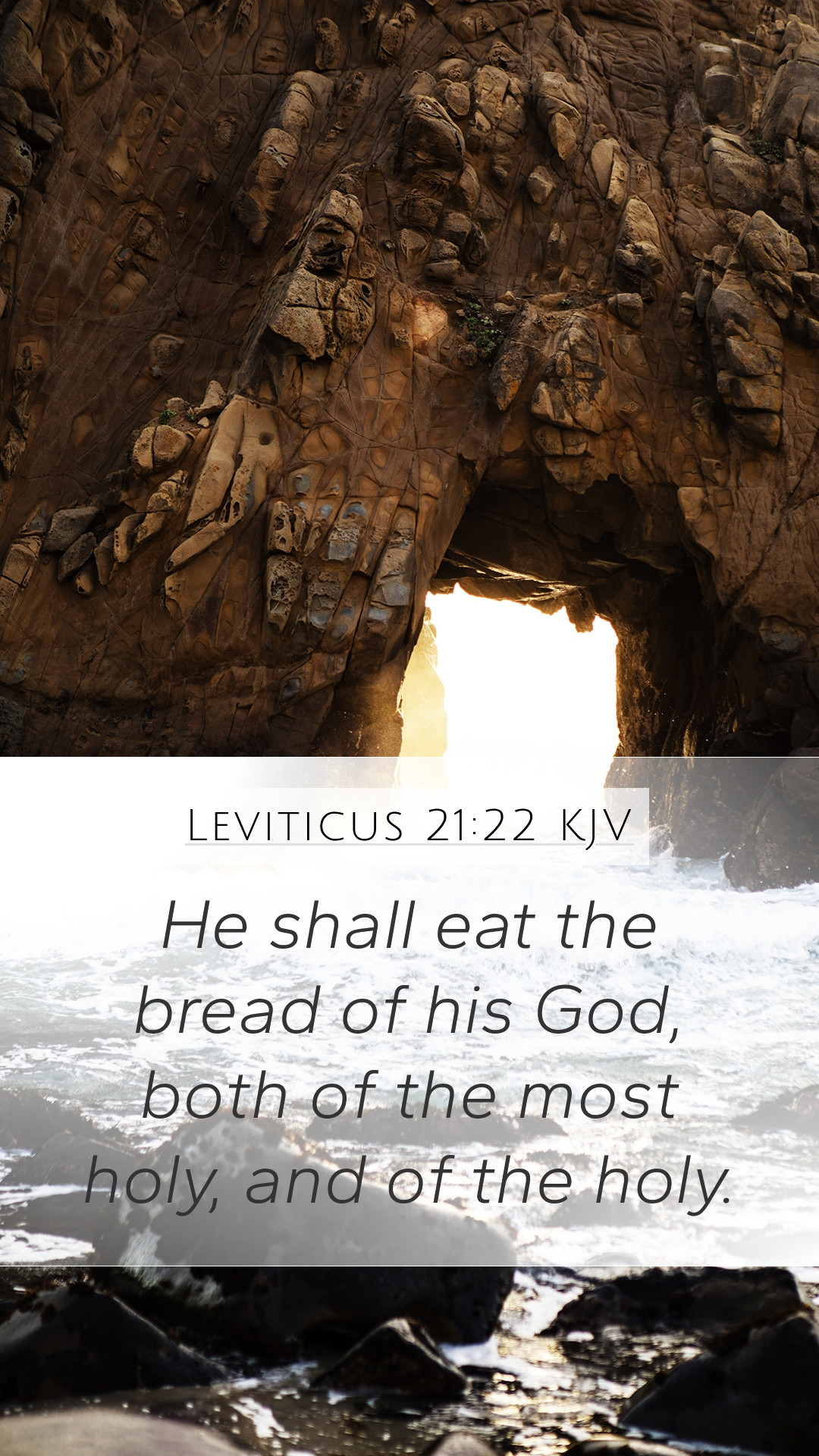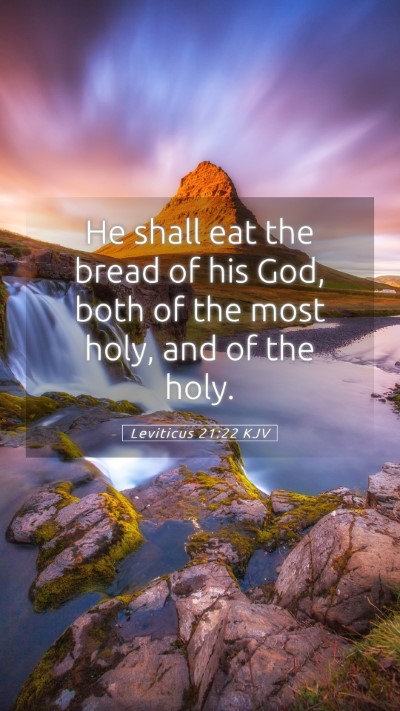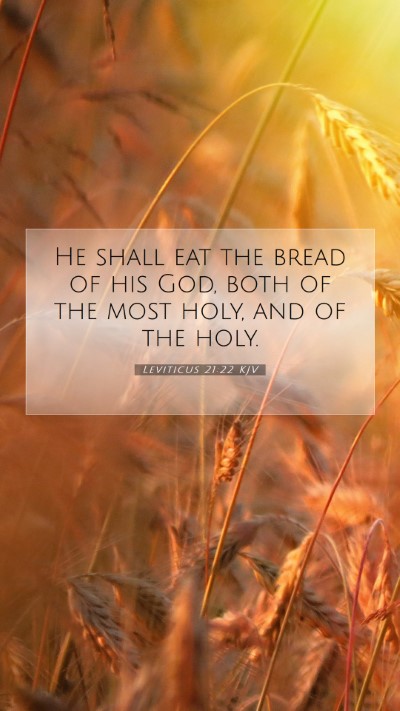Understanding Leviticus 21:22: A Comprehensive Bible Study
Leviticus 21:22 states: "He may eat the bread of his God, both of the most holy and of the holy." In this passage, we see important insights into the responsibilities and privileges of the priests in the Israelite community. Below is a summarized meaning of this verse, drawing combined insights from public domain commentaries including Matthew Henry, Albert Barnes, and Adam Clarke.
Context and Background
The Book of Leviticus outlines various laws and regulations given to the Israelites, primarily revolving around holiness, offerings, and the priesthood. Specifically, Leviticus 21 addresses the qualifications and conduct expected of the priests, who were set apart for sacrificial duties and leading the people in worship.
Commentary Insights
- Matthew Henry's Commentary:
Henry emphasizes the distinction between holy and most holy things, highlighting that the priests had unique access to what was consecrated to God. This access signifies their elevated status and their role as mediators for the people. They are not only officials of worship but also partakers of the holy provisions due to their service.
- Albert Barnes' Commentary:
Barnes notes that the "most holy" refers to offerings that were especially reserved for God, while the "holy" could relate to other offerings made by the people of Israel. This duality reflects how offerings are essential for atonement, and they strengthen the relationship between the people and God, mediated by the priests.
- Adam Clarke's Commentary:
Clarke elaborates on the practical consequences of this verse, pointing out that the privileges of the priests were accompanied by stricter accountability and moral standards. The act of eating the bread represented sustenance, which was a provision from God for their ministry as well as a symbol of their sacred responsibility.
Theological Significance
Leviticus 21:22 teaches us about the concept of holiness in service to God. The priestly role was not just about performing rituals but about living out the implications of holiness in all facets of life, including how they received and consumed the holy provisions. This illustrates a broader theological truth: those who serve God must also be attentive to their spiritual condition and moral integrity.
Application for Today
For contemporary believers, this verse provides profound lessons on the significance of being set apart for God's service. Just as the priests partook of the holy bread, Christians are called to partake in the blessings and provisions of God, recognizing that such privileges come with the responsibility of living a life that reflects His holiness.
Possible Cross References
- Exodus 29:33: Discusses the priests partaking in the offerings as a provision from the people's gifts.
- Numbers 18:8-10: Outlines the priests' entitlements to holy offerings presented to God.
- Hebrews 13:10: Connects the New Covenant believers to the sacrificial system, emphasizing spiritual sustenance through Christ.
Conclusion
In summary, Leviticus 21:22 encapsulates critical aspects of the priestly role within Israel, emphasizing that access to the holy bread symbolizes a deeper commitment and relationship between God and His servants. This insight underscores the importance of understanding Scripture within its historical context, guiding us as we apply these eternal truths to our daily lives.
As you delve deeper into Bible verse meanings and interpretations, remember that every passage invites us to reflect on our relationship with God, the significance of our calling, and the holiness that should characterize our lives as believers.


